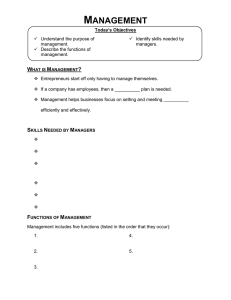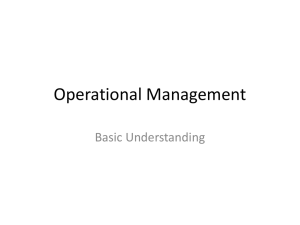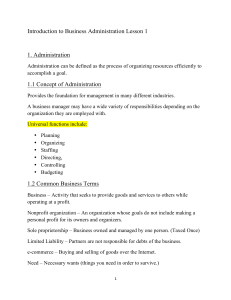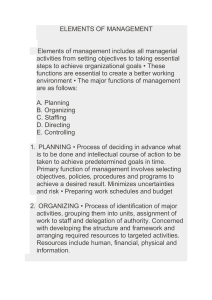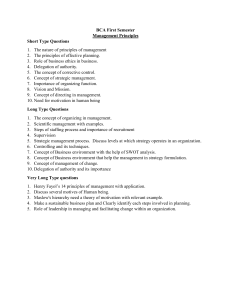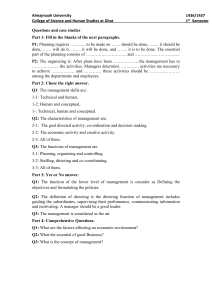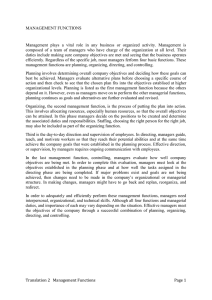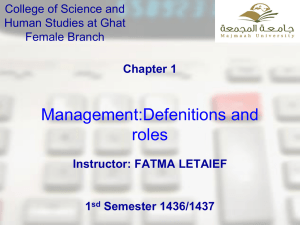Library Administration: Manager Functions & Scientific Management
advertisement
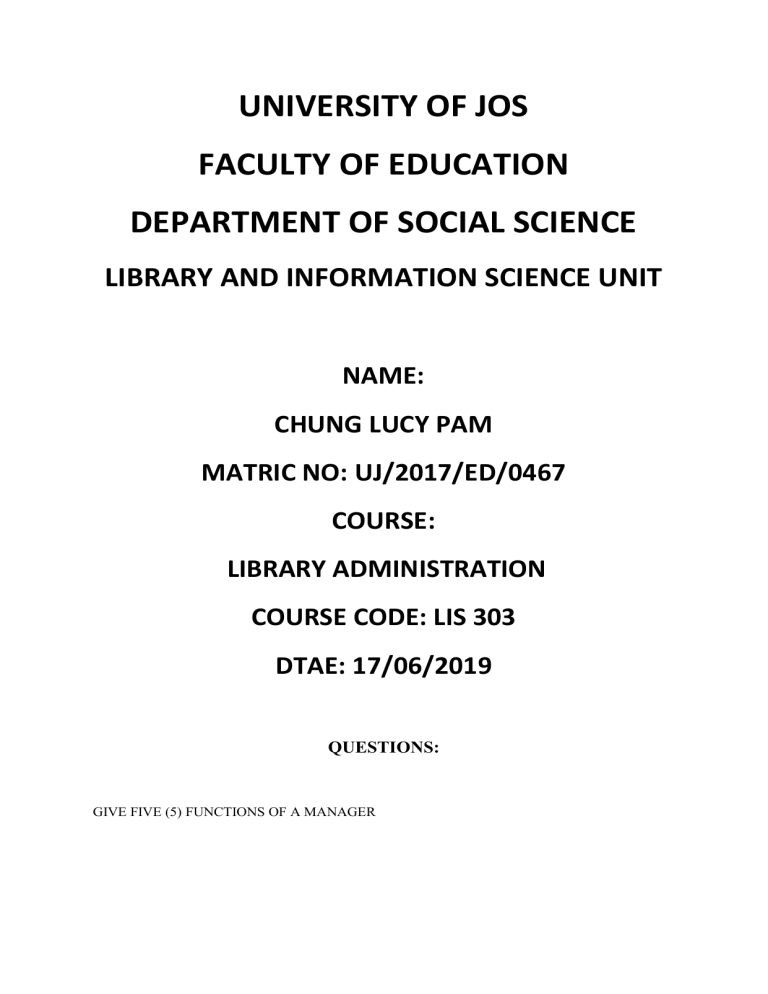
UNIVERSITY OF JOS FACULTY OF EDUCATION DEPARTMENT OF SOCIAL SCIENCE LIBRARY AND INFORMATION SCIENCE UNIT NAME: CHUNG LUCY PAM MATRIC NO: UJ/2017/ED/0467 COURSE: LIBRARY ADMINISTRATION COURSE CODE: LIS 303 DTAE: 17/06/2019 QUESTIONS: GIVE FIVE (5) FUNCTIONS OF A MANAGER Definition of science: Science is the systematic organization of knowledge in the form of table exploration and prediction about the universe. Definition of management: Management is the science or an act of utilizing resources or people to achieved a goal. 1. What then is a scientific management? Scientific management is a theory of management that analyzes and synthesizes workflows. Its main objective is improving economic efficiency, especially labor productivity. It was one of the earliest attempts to apply science to the engineering of processes and to management. Four principles of scientific management Taylor’s 4 principles are as follows. 1. Replacing work by “rule of thumb” or simple habit and common sense and instead use the scientific method to study work and determine the most efficiency way to perform specific tasks. 2. Rather than simply assign workers to just and job, match workers to their jobs based on capability and motivation and train them to work at maximum efficiency. 3. Monitor worker performance and provide instruction and supervision to ensure that they are using the most efficient ways of working. 4. Allocate the work between managers and workers so that the managers spend their time planning and training allowing the workers to perform their task efficiently. A manager by definition is a person responsible for overseeing a department or a group of employees. Managers are utilized in every sectors and the business model relies on their leadership and ability to operationalize the management structure. The five functions of a manager are as follows: 1. 2. 3. 4. 5. Planning Organizing Staffing Directing Controlling 1. Planning: in an organization, planning can become a management process, concerned with defining goals for a future direction and determining on the missions and resources to achieve those targets. 2. Organizing: is the establishment of effective authority relationships among selected work, persons and work places in order for the group to work together efficiently. Organizing is a process of dividing work into sections and department 3. Staffing: most employers expect their managers to interview hire and train new employees. 4. Directing: is said to be a process in which the managers instruct, guide and oversees the performance of the workers to achieve predetermined goal directing is said to be the heart of management process. 5. Controlling: this is one of the managerial functions like, planning, organizing, staffing, and directing .control in management means setting standards measuring actual performance and taking corrective action. REFERENCES:
